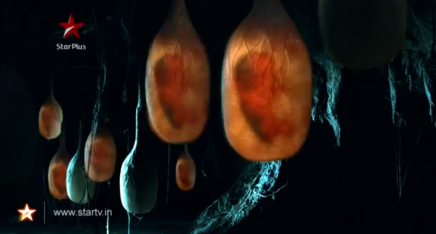Dhritarashtra was acting as the representative of the king in the palace of Hastinapur with his hundred sons and blind-folded wife beside him while Pandu was residing in forest with his two wives and five sons.
The childhood of the hundred princes in the palace was, however, very different from that of the five princes in the forest.
Duryodhan was growing up under the care of Shakuni, who constantly nurtured hatred in his mind against the Pandavas stating that they were the sons of the man because of whom Duryodhan’s father couldn’t become the king. Yudhishthir was growing up under the care of his father, Pandu, who taught him only about righteousness, serving the nation and how to be the ideal king. The eldest sons of both fathers definitely received more attention than the rest of the sons as in the eyes of the elders they would be the king.
When the princes would ask: Who’s a great king?
Shakuni to Duryodhan: A great king is the one who has his set of loyalists, who is aware of his enemies and wipes them whenever there’s an opportunity. A great king does anything in his capacity to safeguard his right to the throne.
Pandu to Yudhishthir: A great king is the one who lives for his subjects, who works for their improvement and uplift, who helps them in droughts and natural catastrophes and safeguards them in the boundary of his nation.
When the princes would ask: What is the duty of a kshatriya?
Shakuni to Duryodhan: To become a powerful warrior, the one whom everybody should be afraid of. No one should dare to raise an eyebrow against him and the one who does should not be left with an eye!
Pandu to Yudhishthir: To become a powerful warrior, so that he can save his people and their fundamental rights. A true Kshatriya acquires martial skills not to dominate but prevent domination of the weak.
Both the princes were growing to become kings but of opposite kinds. But only the wiser Bheeshm and Vidur could sense the problem ahead. A kingdom could not have two kings.
One thing that was common to both the princes, however, was the ultimate loyalty of their younger brothers towards them. While the ninety-nine sons of Dhritarashtra would do whatever Duryodhan would demand, the younger Pandavas would also never refute an order of Yudhishthir.
One day, in the forest, Kunti had gone to pluck flowers for her morning prayers. Yudhishthir was busy in one of the Yoga forms, Bheem had found a tree laden with fruits and was determined to unladen it, Arjun was trying to tie the two ends of a curved wooden shaft with a rope, Nakul was busy with a facial and Sahadev was busy meditating. Pandu found a moment alone with his wife Madri and years of his separation from either of his wives culminated into one strong desire in him to with the beautiful Madri.
He approached her with a will he had never thought he will approach her with and took her in his arms. Madri was excited at the thought but the curse of Rishi Kindam was still on top of her mind. She tried to push Pandu away but he found her too irresistible for the moment to let her go. The next instant, the curse took effect and Pandu suffered a severe heart-attack. Madri was in the arms of her husband a while before and in the arms of a corpse a while later.
When Kunti returned she saw a wailing Madri in the cottage with an exposed shoulder and in an instant she realized what had happened. rush of mixed emotions filled her heart and she wasn’t sure if she should cry over her husband’s death or get furious on Madri for letting Pandu approach her.
(Kunti’s life was ironical in many ways. When she had not intended any relation, she was given a son by Sun. When she was willing for a relation, her husband married another woman. When the husband wasn’t able to produce sons, she gave him heirs and even two sons to Madri. But at the end, her husband died of getting attracted to not her but Madri.)
The news spread to Hastinapur that their former king died in the forest. Bheeshm and Vidhur reached the spot and saw a young Yudhishthir completing the funeral rites of his father. He did not need anybody’s guidance and he appeared to know everything more than the pandits around.
Kunti decided to die on her husband’s pyre being a Sati but Madri insisted that she will not be able to live in the world alone with the guilt that her husband died because of her. She chose to become Sati instead and leaped on Pandu’s pyre leaving her two sons with Kunti. Kunti was now a mother of five sons with no husband and no palace. Life was harsh to this princess of Kuntibhoj.




